The Nurse’s Story
By Mahnoor M. Farooqui | Health/Medicine | Published 7 years ago
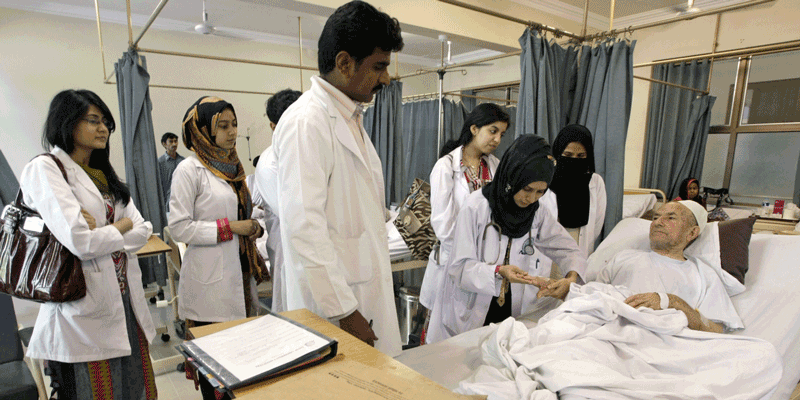
The universal paradox of the nurse: they are an integral, vital component of the healthcare system, yet are treated abysmally. Research on the institution of nursing definitively proves that these caregivers are the backbone of medical institutions, but as countless websites and infographs will testify – especially in developing countries like Pakistan – they remain at one of the lowest rungs of the socio-economic and class ladder, and additionally, that their profession features among those at the highest risk for work-related injuries and stress – of many kinds.
Both, in hospitals and academic institutions, nursing professionals are subjected to verbal abuse, violence and sexual harassment. The usually silent ill-treatment endured by nurses, mostly at the hands of men in authoritative positions, is a manifestation of the ingrained belief among the community that this is par for the course in this profession. Nurses have long been made to feel that these behaviours – threatening language, humiliation, molestation and intimidation – are occupational hazards, and so, because of an age-old virtual code of silence, they often internalise the abuse and blame themselves.
These burning issues in the healthcare system thus go largely unchecked. But the question lingers: if nurses are so unarguably important to well-being, why are they treated so shabbily?
Harassment, lack of autonomy, status and resources, alongside a meagre pay scale and perpetual workload are just a few of the documented factors responsible for the occupational stress that affects nurses. Studies published in the American Journal of Nursing have shown that in any given year, nearly half of all nurses will have struggled with lower back pain. A paper published in 2016, ‘Occupational stress among nurses of tertiary care hospitals in Karachi, Pakistan,’ states that one in five nurses wish to quit their job, and 40 per cent experience substantial burnout.
Fayyaz Waqar, a veteran in the profession of nursing, sought to circumvent this occupational stress by starting her own healthcare provider agency in 2015. Waqar studied at the College of Nursing (School of Nursing), Holy Family Hospital in Karachi, where she did a three-year general nursing programme, earned a diploma and thereafter, the status of a registered nurse (RN) awarded by the Pakistan Nursing Council (PNC). In the process, she also received her PNC card. Waqar went on to specialise in cardiac ICU from Tabba Heart Institute in Karachi in 2013, and worked at a number of medical institutes, including South City Hospital and the Aga Khan Hospital (AKU). While these are reputable institutions, according to Waqar they have questionable environments, which induced her to change her workplace every so often. Fortunately for her, doing so had an upside: Waqar slowly built a strong professional network that would enable her to establish her own business and link patients and their families with nurses, attendants and maids. Waqar’s agency helped bring in additional income for her household, while simultaneously providing qualified nurses alternative job opportunities, and helping steady the market price for nurses’ wages.
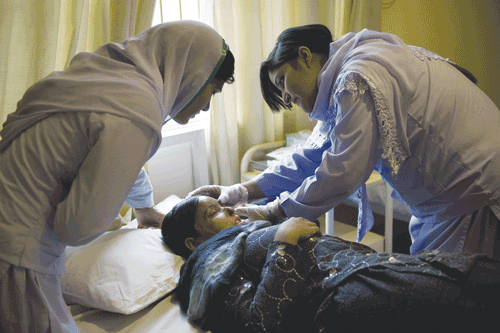
Primary care-giver: The attending nurse.
Javed,* a male nurse working at AKU, who had previously worked at Liaquat National Hospital, spoke of how nursing jobs have become harder to obtain because the application process has changed: “Earlier, a Matric or O level certificate with an A level or Faculty of Science (FSc) degree and a three-year diploma in general nursing and specialisation was required to become a practicing nurse. Now, a Bachelors in Nursing (BSN) is a prerequisite set by most hospitals, especially for positions in management. And while health education is unarguably important, the expensive graduate programmes makes for a class-based merit system, where higher income students can become nurses in the more elite medical establishments or follow the medical track to become doctors, while the less well-heeled are at a complete loss or relegated to hospitals for lower-income patients.”
Expressing his disappointment with the PNC’s attempts at a standardised training protocol, Javed continued, “A general nursing diploma is considered to carry less value and career mobility than a BSN, in spite of the fact that there is not a lot of difference between the two. The Pakistan Nursing Council has failed to recognise that a country with such major deficits in resources cannot provide an equal opportunity playing field for people of all incomes, no matter how earnest they are.”
Javed also went on to discuss the challenges faced by students, many of whom have to work while pursuing their degrees, and struggling to manage their domestic lives. While that was hard enough, now nurses undergoing training have the added pressure of knowing that with no guarantee of tenure, they may not even have a job at the end of the day. The emotional, mental and physical pressures results in lower productivity in an already abysmally small labour force. Research as recent as 2016 in the Journal of Dow University of Health Sciences (JD
UHS) stated that the nurse to patient ratio is 1:50 in hospitals, and as a result, nurses are only too often vulnerable to overload and burnout.
“Nurses ki tadaad bohat kam hai (The percentage of nurses is very low),” said Ahmed,* another male nurse, who has worked at South City Hospital, Liaquat National Hospital and Jinnah Hospital. Ahmed lamented the financial struggles nurses have to shoulder on account of their paltry salaries, and the physical and emotional pressure of the work itself. “One nurse is often assigned many patients at a time, with no overlapping reliever or nurse’s aide. We have to know everything about the patient, so we take the time to find out, and sometimes, we may know what is better suited for the patient than even the doctor in terms of treatment. But because technicians and doctors are more revered in the Out Patients Department (OPD), we have little to no say, but are expected to keep providing emotional support alongside our duties.”
While private hospitals make it contractually impossible for nurses to create unions to safeguard their interests or fight for more amenities, larger private hospitals such as the AKU and Tabba Heart Institute do seem to be cognisant of their rights and provide benefits such as lounges for nurses, meal plans and discounted access to medical facilities.
Smaller private hospitals, however, often fail to provide any benefits beyond monetary compensation, the range of which can be very low. “The international monthly wage rate for nurses is around $4,061. The going rate for an attendant or nurse for a day’s duty in Pakistan is around Rs. 2,000,” said Fayyaz Waqar. “Those that bargain over that amount are probably unregistered or unqualified nurses. The average monthly salary of a nurse in private hospitals is around Rs. 33,000, though some private hospitals give a salary as low as Rs.22,000 — Rs.23,000. Government hospitals pay better, with a monthly salary of upto Rs. 60,000.” However, a better pay scale does not translate into better working conditions.
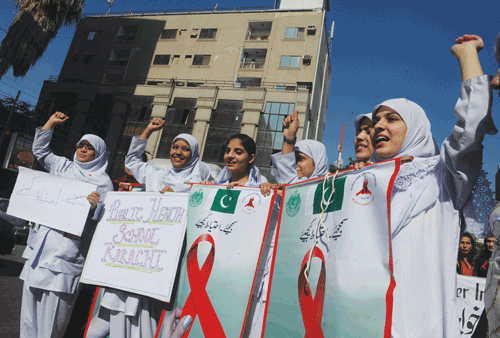
Pakistani nurses chant slogans during a rally to mark World AIDS Day in Karachi on December 1, 2010.
In February 2017, nurses from public hospitals across Sindh and the Young Nurses Association (YNA) staged a three-day sit-in outside Karachi Press Club, boycotting health services against non-payment of allowances, poor service structure, deplorable working conditions and year-long delays in promotions. Hundreds of surgeries were postponed as a result of the boycott, and patients with urgent medical needs were directed to private facilities, and technicians, nursing aides and doctors had to fill in for the absent nurses.
It was only when the Karachi deputy mayor and representatives of the Sindh Health Department assured the demonstrators that their demands would be met that the boycott ended.
By June 2017, the provincial government increased the allowances of public nurses, bringing them on par with other provinces, but they still have not implemented a plan to better the working conditions within which the nurses have to operate on a daily basis. With reports of vermin and cat-sightings within the hospital corridors, blatant disregard for patients’ ward conditions and extremely unhygienic working environments, it is hardly surprising that nurses would seek to protest publicly.
“We have to deal with a number of lethal diseases in horrible workplace conditions on a daily basis,” said Ahmed. “Doctors come in for brief consultations and get a much higher salary than nurses who are exposed to deadly illnesses constantly.”
While the demonstration was a step forward for nurses in the public health sector in Sindh, it does not resolve the lack of reporting on day-to-day problems. Those in the nursing profession generally do not speak out for fear of retaliation, lack of confidence, fear of losing their jobs and because they do not have the communication skills necessary to assert their rights. The nurses’ palpable reluctance to discuss maltreatment is indicative of the systemic attitudes towards women: the stigma associated with the profession does little for nurses’ motivation and self-worth, and adds to the overall negative work environment.
The profession operates in a perpetuating cycle: written off as being a career option for individuals from lower income backgrounds, ergo, only people from lower income backgrounds opt for the profession. The elitism prevalent in Pakistani society dictates a need for the ‘well-off’ to disassociate themselves from those in vocational positions. The myths associated with nurses – that they perform menial tasks, such as cleaning up after patients, and do not possess any actual medical expertise – has only furthered the stigma surrounding the nursing profession. This, along with the age-old toxic misogynistic belief that ‘respectable’ women do not work, much less in a profession where they are exposed to all manner of patients, among them young males.
However, the research paper ‘Nurses’ self-perception about their public image in a metropolitan city,’ published in the JDUHS in 2016, found a correlation between higher education and self-perception. The nursing degree programmes aim at both professional and personal growth, and advanced education usually produces more sound medicalpractice. “If the overall level of health education is increased, many aspects of the healthcare system will fall into place,” said Ahmed. “We need a stronger healthcare set-up with community buildings and facilities for nurses, to encourage students to pursue the field, as it would help to have access to educational resources and would raise awareness about not only the importance of nurses, but information on general public health.”
The newly founded Saifee Burhani School of Nursing is intent on providing just that: a space where students are offered the resources and quality training to become exceptional 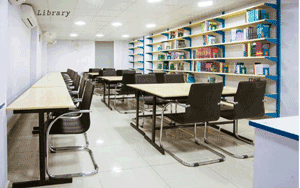
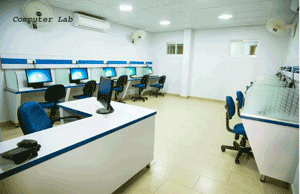
Saifee Burhani School of Nursing: The state-of-the-art facilities available for the students.
caregivers. Mustansir Mohyuddin, Chairman of the state-of-the-art Saifee Hospital and the Burhani Hospital, said the nursing school is on the top floor of the Saifee Hospital, and so, the students’ education will take place within the hospital, with full use of its medical facilities. “They (the school) have a myriad in-house training programmes which will soon be implemented,” said Mohyuddin. “It is our duty and our goal to provide quality nursing, quality consultation and quality structure.”
The chairman went on to elaborate on the shortage of nurses and how after they graduate, they migrate to countries where they find better paid nursing positions. “In Sindh, 1,500 nursing students graduate every year, and we hope that with our sessions to follow, we will help reduce the shortage of nurses in the healthcare system,” he said. The Saifee Burhani School of Nursing is currently teaching its first batch of 30 students, seats for which over 200 candidates applied. “While the Saifee and Burhani Hospitals are institutes which have been set up and managed by members of the Bohri community, 95 per cent of the students in the nursing school come from outside of the community, and the school, as well as the hospital, intends to practice inclusiveness in all aspects of their healthcare service,” said Chairman Mohyuddin. “The hospital is heavily subsidised, and takes on a great deal of the costs to provide standardised education at one-third of the cost of normal schools’ programmes, making it available to students of all income brackets,” he added.
A nursing leader in both practical and educational areas, Alia Nasir, the principal of the Ziauddin College of Nursing for women, is also a central figure in helping revamp the programmes to empower nurses and educate the public on their work. In possession of an impressive resume, with names like the Aga Khan University, Aman Foundation, Liaquat National College of Nursing and the University of London featuring on it, Principal Nasir has focused her efforts in producing qualified, empowered students.
The principal works on incorporating those in lower management positions into her meetings and assignments, so that they gain exposure and are encouraged to aim for senior authority positions. “One commendable quality the school has is the collaborative effort that exists with the Ziauddin University and Hospital, so it allows for the nurses to be seen in a professional environment,” said Nasir. “It helps in projecting the value that should be assigned to the nursing profession.” And hopefully it will also help set a precedent for other hospitals and medical institutions to emulate.
*Names have been changed to protect privacy.
“Nurses have no professional support from management or doctors”
– Ms Fayaz Waqar, Private Nurse
What were the qualifications required to pursue a career in nursing when you started and how have the requirements changed over the years?
When I did my nursing, a Matric in science, or an O’level qualification was the prerequisite to a nursing degree. Now, the Pakistan Nursing Council (PNC) has made an FSc or Alevel qualification compulsory for a nursing diploma.
I did my Matric and Inter from Faisalabad and went to the College of Nursing (School of Nursing), Holy Family Hospital in Karachi for my general nursing diploma. The second and third year I was the student committee president, and after my third year exams, I had ICU (Intensive Care Unit) training for six months.
We would do one medical procedure — for which we had done the theoretical study — thrice, with different teachers each time. Only after getting their signatures would we be allowed to carry it out in the ward; be it bed-making or a blood transfusion.
I did my specialisation and private nursing together. I trained in the CICU (Cardiac Intensive Care Unit) at Tabba Heart Institute during the day and did nursing at night, and managed to get the 2nd position in the Sindh Nursing Board examinations.
Most nursing institutes have four years of training; the basic three years for a general nursing diploma, and one year of specialisation, after which we register for a PNC card. According to the law, if you do not have a PNC card, you cannot work — this is the system that is followed in every single country. However, in Pakistan, people often do not have the card and are still working as nurses — illegally.
Do institutes knowingly hire nurses without a PNC card?
No one without a PNC card can work in the government hospitals. They are the best at screening. But in smaller private hospitals, like the Jamiyat Hospital for example, people are hired without the required legal qualifications.
So does it not become obvious after some time that these people are not trained for the posts they are holding?
The institutes engaged in such practices hire midwives, aides and attendants. They may not have the refined knowledge or experience but have some awareness of basic medical practices and medical jargon, so they get away with it.
What prompted you to start your own agency?
I had left work as I was starting to develop back issues. Every third nurse has problems with his/her back, due to the physical demands of their jobs: changing adult pampers, lifting up patients, helping them walk, etc. There is no physiotherapy afforded to nurses unless they seek it themselves, so I had to leave work and focus on getting better.
As it happened, a patient I had treated before for some time was not doing well, and needed an attendant, so they approached me. As I could not do the work myself, I arranged a caregiver for them, and they were very happy with the person. I thought, this would be a good way to do something with my time, to help my fellow nurses and the attendants I knew, and to provide patients with good care. I started the agency in 2015. It doesn’t bring in too much of an income, because I do not take a lot of commission, but it does help to have some extra money at home.
What is the monthly gross salary for nurses and the non-monetary benefits they receive?
The average monthly salary of a nurse in private hospitals is around Rs. 33,000, though some private hospitals give a salary as low as Rs. 22,000 — Rs. 23,000. The international monthly wage rate is at around $4,061 (ie. Rs. four lakhs plus in today’s currency). Government hospitals pay better, with a monthly salary of upto Rs. 60,000. Government hospitals usually give 30-days annual vacation, and there is a provision for 14-15 days sick leave and three months maternity leave for women. The last place I worked at, my salary was Rs. 33,300 per month. They gave us a food expenditure card worth Rs. 3,000, and each month the money would be cut according to how many times we used it, and then refilled at the beginning of the month.
There is no one hospital that provides significantly more benefits than another hospital. Larger private hospitals such as AKU and Tabba Heart Institute have lounges for nurses. The South City Hospital CCU and ICU have no lounges, no places for break or facilities for food for nurses. The Neurospinal and Medical Institute Hospital (NMI Hospital) and National Medical Centre (NMC) do not have lounges either.
Nurses who work at South City Hospital or NMC have to prepare meals for themselves, which can be very problematic. They also do not have storage facilities for their food, and are simply given a locker, where they are expected to keep their food alongside their clothes, shoes and other belongings. This is very unhygienic, and can cause the food to spoil quickly.
The Holy Family Hospital, my mother institute, was at one time, the best hospital in this regard. They took care of their nurses. There, when the shifts were over, they would provide you with an entire meal before you clocked. They provided nurses with tea, breakfast, lunch and dinner with fruit and sweet dishes to boot. They made sure the meals contained all the important food groups. We were given chicken or meat twice a week, and fish once a week. Soup was available to us at any and all times.
How long are nurses’ hospital shifts?
The standard shift length for nurses across the world is 148 hours a month — you can Google this. It is also the maximum amount of time a nurse can work, mentally and physically, because you get tired. The demands of the job can also be emotionally exhausting. So, on paper, most hospitals have an eight-hour shift, and when the shift is up, the nurses are to leave, and management is aware of when their shifts are over. Some private hospitals however, assign double shifts. Aik donkey say bhi badtar treat kiya jata hai (They treat you even worse than they would a donkey).
When I was working at AKU there was good management; it was a 148 hour work month. Now, reportedly, 193 hours a month for a nurse are mandatory. At one point, if you were 30 minutes over your shift, your overtime would start. Now, nurses struggle just to complete their shifts.
Institutes don’t care that often nurses live far away and spend most of their time commuting to work and back. I would be out for 19 hours at an end; travelling to work, working all day or night, then travelling back home, and I would be given another duty the next day. Almost every nurse struggles with this.
What has been your personal experience of management?
Nurses have long been undervalued and unappreciated. In some places no matter how well you are doing at work, or how much experience or knowledge you have of the field, nurses have to play along with keeping the management happy, because of the position they are in.
Nurses do not have any professional support. They can be mentally tortured by management at any time: often they have double shifts and tasks assigned to them, irrespective of their personal compulsions and needs. And nurses cannot refuse any work. Additionally, despite having specific professional training in the field of medicine, they can be given any number or type of duties to perform, from cleaning bedpans to changing bedsheets.
There is a great shortage of nurses, not nearly enough to fulfill the demand. You have nurses monitoring critical patients without any aides. Sometimes they don’t go to the bathroom for upto 10 hours. They just sit there with the patient, for if anything awry should happen, it is the nurse’s responsibility. In wards, they have about 15 patients for one nurse, which often results in patient neglect. This neglect leads to a blame game where the nurses are invariably the losers. Management doesn’t suffer, while nurses often face on-the-spot termination of their jobs – and never mind how worthy their work has been until then.
Doctors don’t support nurses, and are, in fact, quick to throw them under the bus if a patient has a problem with the way he/she feels they are being treated. There are no unions, especially in private hospitals. And so, we do not really have an official body safeguarding our rights. This allows management to take advantage of nurses. The cyclical recruitment of fresh nurses is an example of this: private institutes often remove senior nurses because they can hire entry level nurses at a lower salary.
However, there are a few hospitals which are better. They work on equipping their nursing staff with external training programmes and have specific medical facilities for their training. AKU has the best theoretical classes and Liaquat National Hospital has the best practical courses. AKU works on holding training seminars and workshops for their nurses to hone their skills and expand their knowledge.


